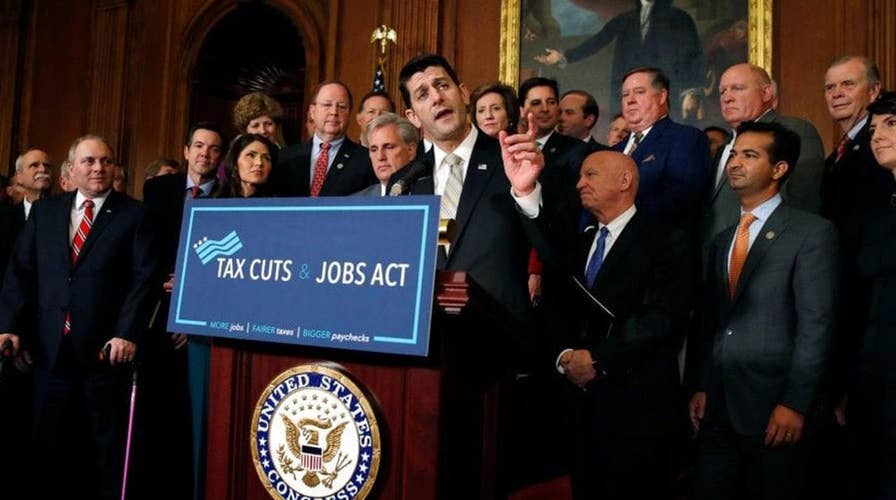Republicans outline tax reform 2.0
What can the American public expect? Insight from Patrice Lee Onwuka, Independent Women's Forum senior policy analyst.
An overlooked provision in the GOP tax cuts from 2017 has the religious wings of both parties pitted against one another.
The provision specifically eliminates tax breaks for both non- and for-profit organizations that helped employees pay for parking spaces and public transit passes.
But as the measure kicks in, some religious leaders are sounding the alarm on what they say amounts to a 21 percent tax increase on churches and charities, McClatchy reported.
“One side is saying ‘This is an oversight,’ the other is calling it Republicans’ war on religion,” said Galen Carey, of the National Association of Evangelicals. "[O]verheated rhetoric probably won't help us get a solution."
The reported ambiguity of the language has caused confusion among those who will be affected, and some have argued that preparing the new tax forms will open the door to other externalities.
"Most churches do not have the sophistication that's necessary to deal with the tax code," said assistant House Minority Leader Jim Clyburn of South Carolina. "Small churches that exist in communities I represent … don't operate as businesses. They've never operated as businesses."
Clyburn, who has repeatedly called the tax cuts a “scam,” has introduced legislation to repeal the provision. But some Republicans have downplayed the provision’s significance.
"People call it a tax on churches and charities. There is no tax on churches and charities," said Rep. Tom Rice, R-South Carolina. "What we've said is, 'We're trying to make things fair across the board. So organizations — all organizations, for-profit, nonprofit, everybody that gives their employees free stuff, we're trying to make it equal.'"
Clyburn’s bill to repeal the 21 percent tax currently has 31 co-sponsors, all Democrats. But some Republicans have brought forth repeal efforts of their own.
Republican U.S. Reps. Mike Conaway of Texas and Mark Walker of North Carolina have recently proposed their own bills to repeal the provision. But in an interview with McClatchy, Walker suggested the additional taxes won’t be a far-reaching issue.
"Of all the issues that we'll be working with and happy to discuss with our constituents, I don't know if this will be on the top of that list," he said.













































